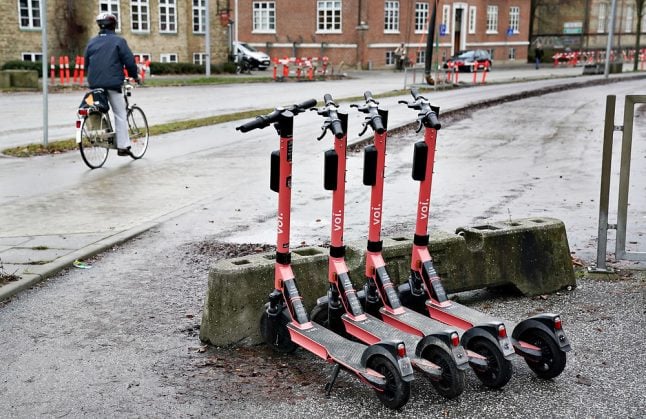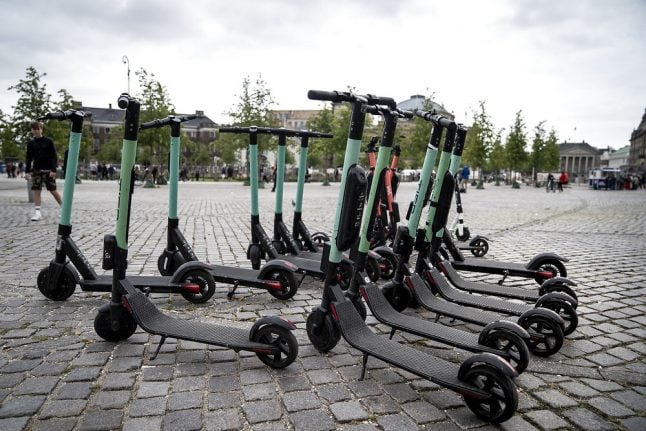According to an evaluation conducted for the ministry, accidents are seven times more likely on electric scooters compared to bicycles, according to a statement on the ministry’s website.
The report was commissioned as part of a January 2019 bill legalizing use of the machines on Danish roads.
Using an electric scooter carries seven times the risk of being involved in an accident compared to using a bicycle, the report found.
Preliminary accident figures from the Danish Road Directorate (Vejdirektoratet) for 2019 show that police registered 57 accidents involving motorized scooters, of which 24 cases resulted in injury. In comparison police have registered 2,042 bicycle accidents in which 740 injuries occurred.
A calculation of the accident rate using distances travelled showed the frequency of accidents was 0.01 per 10,000 kilometres for bicycles and 0.07 per 10,000 kilometres for motorized scooters.
“One of my key responsibilities as transport minister is to ensure that we can travel safely and securely in traffic. This evaluation unfortunately suggests that this is not the case with regards to electric scooters,” Engelbrecht said via the ministry statement.
Electric scooters appeared in large numbers in Danish cities since in 2019 as rental companies took advantage of the trial traffic provisions to operate them.
The scooters must be used on bicycle lanes and are subject to the same traffic rules as bicycles. They may not travel faster than 20 kilometres per hours and drivers must be over 15 years old.
The two-wheeled electric vehicles are often left badly parked, and authorities in Copenhagen have introduced rules limiting their numbers in specified areas. Police in the city last summer stopped 28 people in one weekend for riding the scooters while drunk or stoned.
Following the unfavourable conclusion of the report on their safety, Engelbrecht suggested changes could be made to the trial traffic laws relating to their use.
“There are several obvious measures which could be looked at. We could, for example, introduce a requirement for electric scooter users to wear a helmet while driving,” the minister said.
“Similarly, I have suggested municipalities could enter close dialogue with rental companies in relation to implementing bans on driving the scooters at certain times of day, so we can particularly prevent driving while intoxicated,” he continued.
“In general, we need to re-evaluate the reasons which may be behind the high accident rate,” he added.
Engelbrecht will now discuss with his parliamentary counterparts how traffic provisions can be changed to promote safer use of the electric scooters.
READ ALSO: Electric scooters a danger to users when driven legally: Danish police



 Please whitelist us to continue reading.
Please whitelist us to continue reading.
Member comments